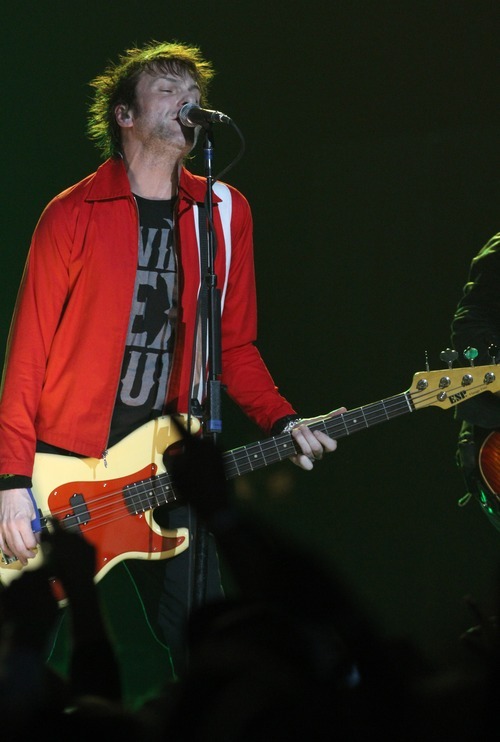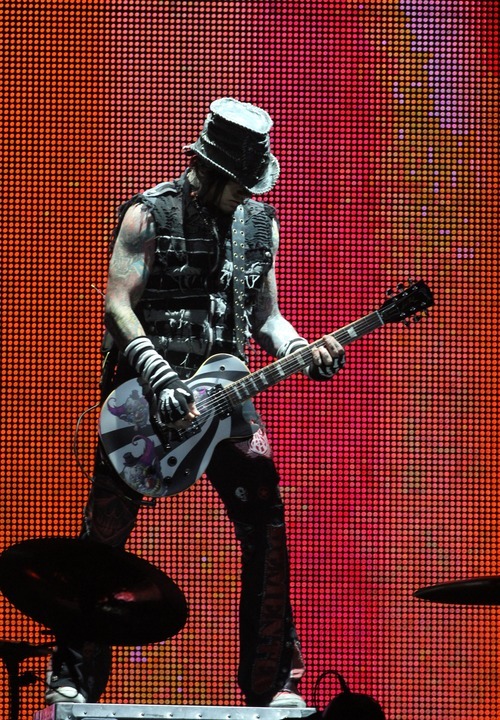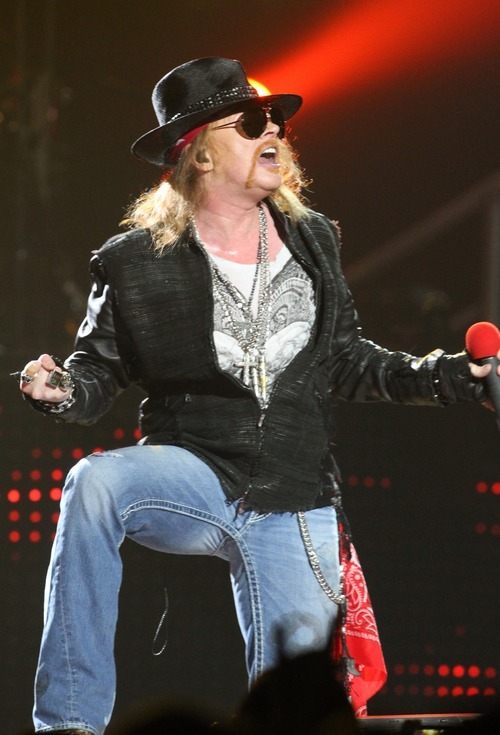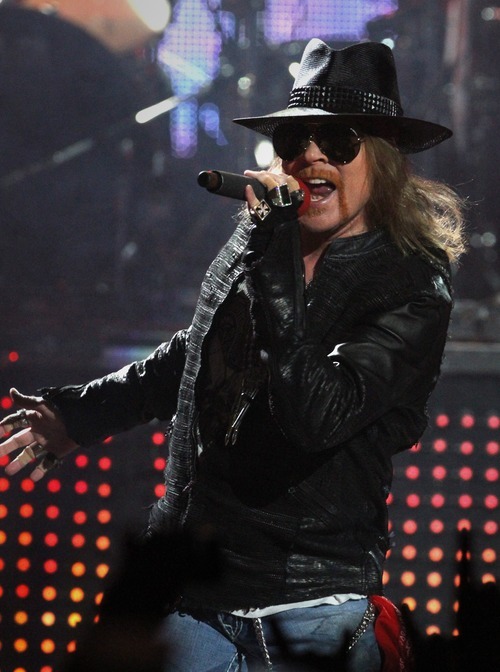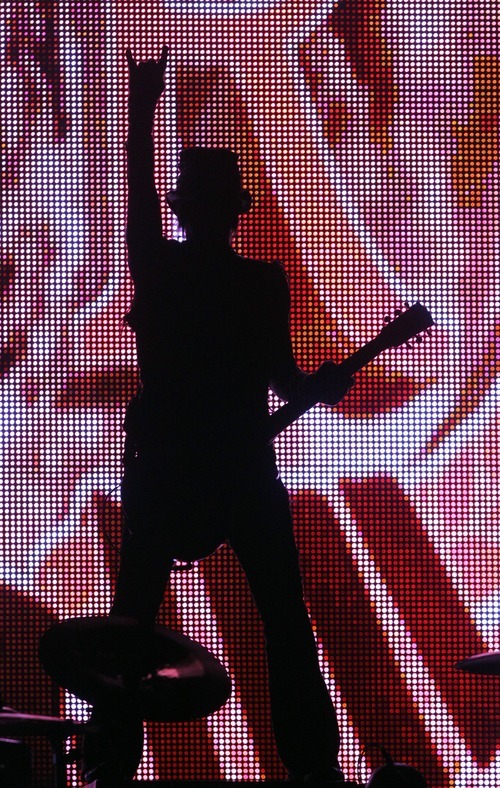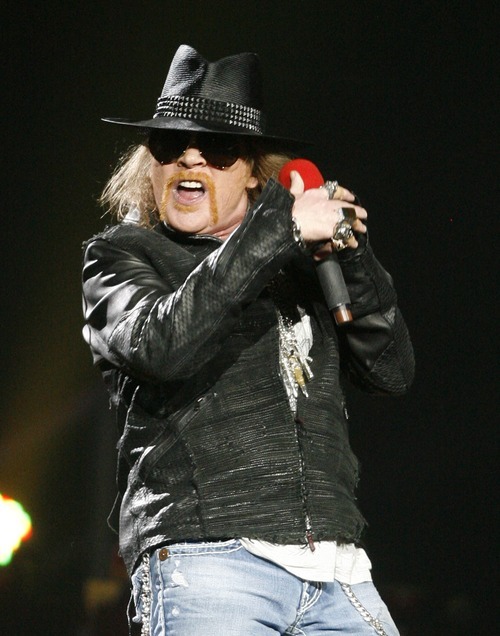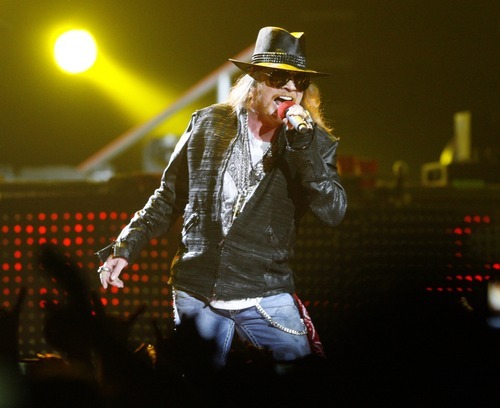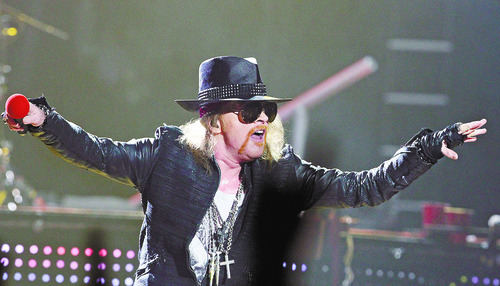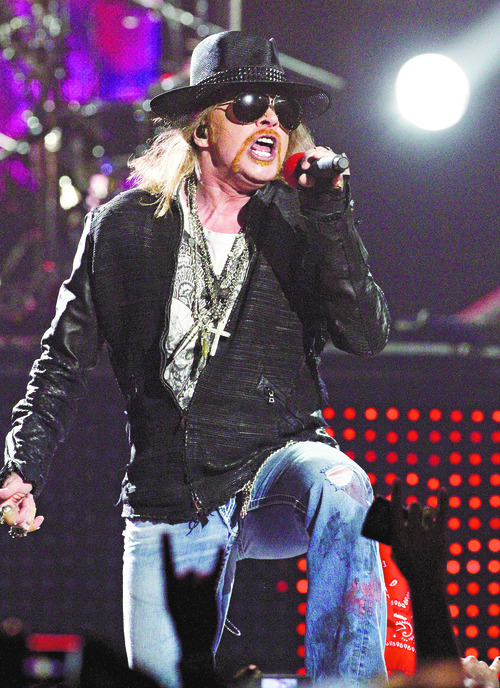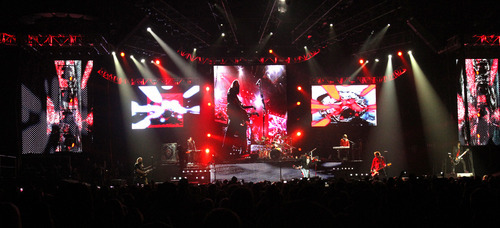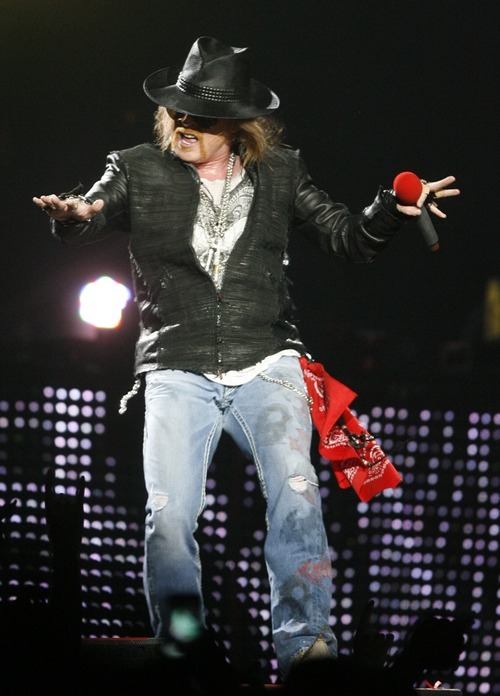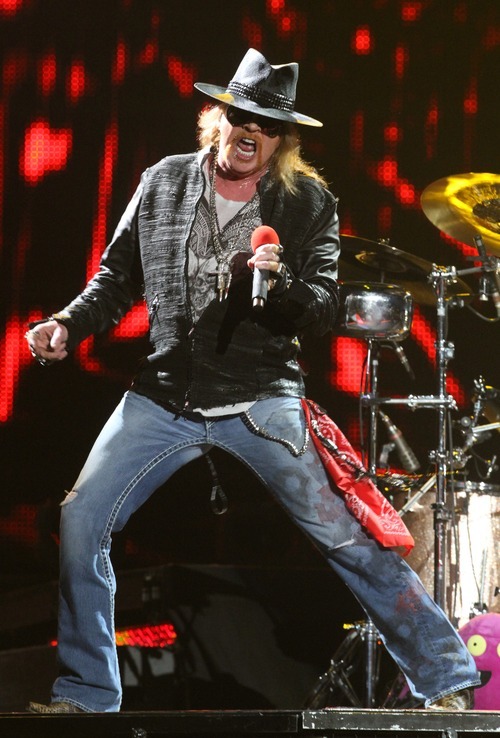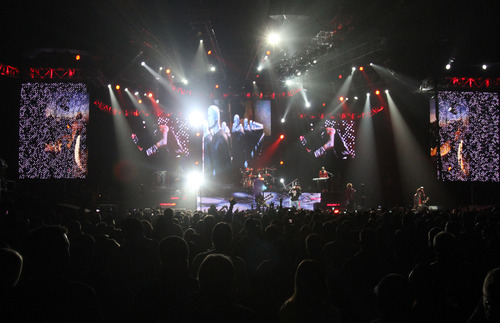This is an archived article that was published on sltrib.com in 2011, and information in the article may be outdated. It is provided only for personal research purposes and may not be reprinted.
Right before hard-rock band Guns N' Roses launched into its explosive cover of Paul McCartney's "Live and Let Die" about one hour into its show Wednesday night at the Maverik Center, West Valley City Mayor Mike Winder improbably stepped onstage and greeted the band's mercurial frontman Axl Rose.
Winder congratulated the band on this past week's announcement that the Los Angeles-based band had been inducted into the Rock and Roll Hall of Fame, and presented Rose a key to the city.
"How long do you stay open?" Rose asked the mayor.
"All night for Guns N' Roses," the mayor replied.
The mayor had no idea how right he was, as the band played an epic, thrilling and utterly captivating three-hour set with more than 30 songs that ended as the closing refrains of "Paradise City" were played just after 2 a.m.
The big question of the night was whether the backing band of Guns N' Roses was up to the task of accompanying Rose on some of the best rock songs of the latter part of the 20th century, or whether they — like Winder, who has been in the news lately because of writing news stories under a fake byline — were merely impostors.
The answer? The seven musicians, despite some missteps at the end of the long evening, made most in attendance forget the former band members of GNR, Those Who Shall Not Be Named.
The acoustics in the packed arena were superb as Axl and the Magnificent Seven led the crowd through a blistering set that included song ranging from the band's landmark 1987 debut "Appetite for Destruction" to 2008's "Chinese Democracy."
After the concert began with the opening theme to the serial-killer TV show "Dexter," guitarist D.J. Ashba unleashed the memorable opening riffs of the title song to 2008's "Democracy" and the band was off to the races.
GNR is legendary for its lateness, but refreshingly the band began their show at 11 p.m., a mere 45 minutes after opening act Black Label Society wrapped up its set.
Rose, 49, whose appearance has been lampooned in past years thanks to added weight and cornrows, looked lean and fit in a black leather jacket and blue jeans with a crimson bandanna hanging from his hip. In between changing his headwear about seven times, he fulfilled tje expectations of being the consummate frontman, swaying with his mic stand to the music's rhythms and frequently sprinting to each side of the stage. Rose was in fine voice, with a range between a falsetto to deep tenor, and, best of all, acted as if he still had something to prove.
The truth was, he did have something to prove, as all of the band's founding members have left. But his hand-picked band was just as incendiary as he was, and Rose gave them a chance to claim the spotlight and prove that even though they were not Those Who Shall Not Be Named, they were excellent musicians nonetheless. For example, with Rose off stage, bassist Tommy Stinson led the band though a raucous rendition of The Dead Boys' "Sonic Reducer," which was followed by keyboard player Dizzy Reed's impassioned piano cover of The Who's "Baba O'Riley." (Side note: each of those songs has been notably and frequently played by Pearl Jam, a grunge-era band that was supposed to have replaced "hair bands" like GNR.)
But GNR didn't act like a group of over-the-hill men mining for nostalgia. With four guitar players and two keyboard players, the band added new dimensions and twists to songs that the original band of five couldn't summon. Although the band stumbled over each other musically at times, the effect gave the band a rawness and energy that most corporate rock bands don't possess. They proved that they are still relevant. While many of the the "Chinese Democracy" songs were momentum-killers, there was a spark in the music that made it seem as if this incarnation of GNR could last and create more music.
The missteps noted above came near the end of the long show, when transitions between choruses and verses on "Nightrain" and "Patience" weren't as crisp as they should have been. During the encore, Rose stopped "Better" in the middle of the song because a guitarist messed up. But, remarkably, Rose remained chipper and in good spirits throughout.
And, frankly, if the band hadn't made any mistakes as they neared the three-hour mark, I would have been surprised. I felt as exhausted, considering the time of night. After about an hour of GNR's set, there began a steady trickle of people leaving that continued all night, considering that it was a work and school night. Besides, many of us are of the demograpic where it's no longer fun to show up for midnight screenings of films. We will leave that to "Twilight" and "Harry Potter" fans. I have probably misspelled many words throughout this review, as well as a fair share of bad gramar. Look there, I misspelled that word, because I'm so tired.)
What made the night ultimately unforgettable was the ability of the band to emotionally convey both the hard-edged "Guns" songs (where we are able to live vicariously through Rose's tales of the seedy underbelly of street life) as well as the tender "Roses" side of the band that's often forgotten. The musical highlight of the night was a song that has long divided GNR fans: the Elton John-inspired ballad "November Rain," which reached an intensity never even hinted at on record.
There is just one more thing to say. Boss, I will see you on Monday. I need some rest.


